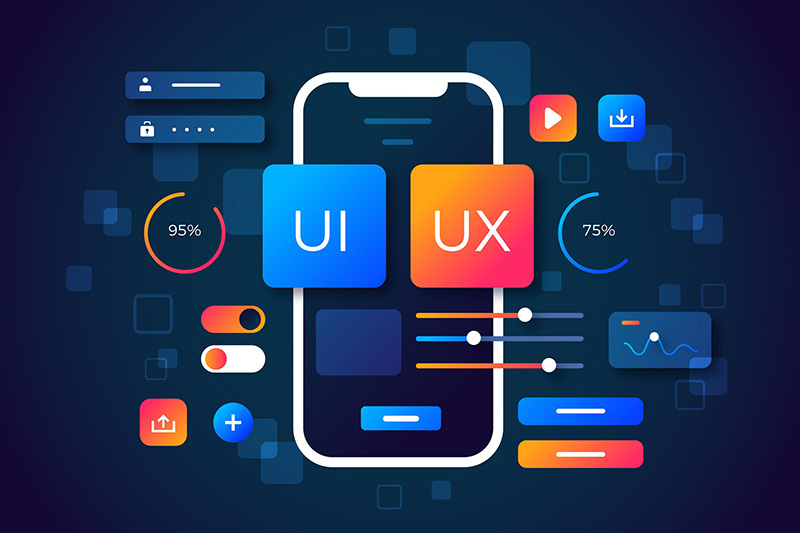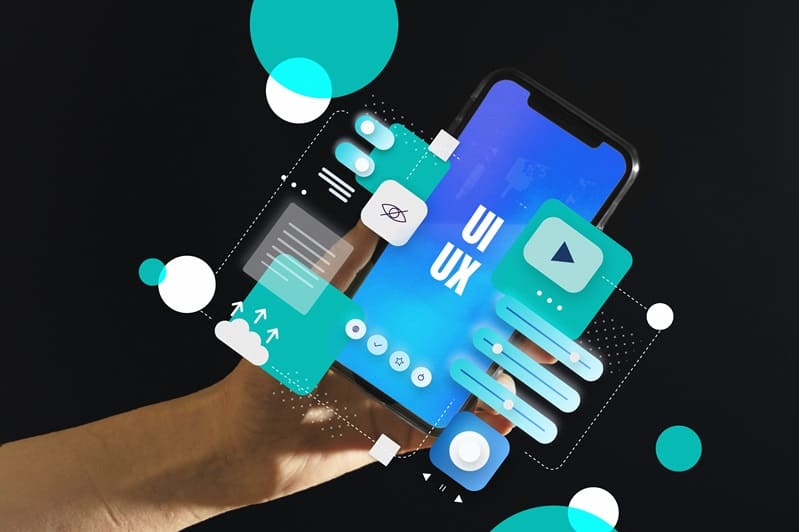
Mobile App Development (MAD), has revolutionized the way businesses and individuals interact with technology. As smartphones become essential, the demand for innovative and user-friendly mobile applications continues to soar. This guide will walk you through the important aspects of mobile app development, from initial planning to final deployment.
Understanding Mobile App Development
Mobile app development is the process of creating software applications that run on mobile devices. These applications can be pre-installed on phones during manufacturing platforms or delivered as web applications using server-side or client-side processing. The development process involves creating installable software bundles (code, binaries, assets, etc.), implementing backend services such as data access with an API, and testing the application on target devices.
One of the critical aspects of mobile app development is understanding the various types of applications available. There are native apps, hybrid apps, and web apps. Native apps are built for specific platforms using the platform’s native programming languages and APIs. Hybrid apps are built using web technologies like HTML, CSS, and JavaScript, and are wrapped in a native container. Web apps are accessed through a web browser and adapt to different devices. Each type has its advantages and disadvantages, which we’ll explore further in the next sections.
Choosing the Right Platform for Mobile App Development
Selecting the right platform is crucial for the success of your mobile app. The two most popular platforms are iOS and Android. Each platform has its own set of guidelines, programming languages, and development environments. iOS apps are developed using Swift or Objective-C and require Xcode as the development environment. Android apps are built using Java or Kotlin and require Android Studio.
When choosing a platform, consider your target audience. iOS users generally spend more on apps and in-app purchases, while Android has a larger global market share. Additionally, the cost of development can vary between platforms. Developing for iOS can be more expensive due to the need for Apple devices and developer accounts, whereas Android development is often more flexible and cost-effective.
It is also worth considering cross-platform development. Tools like Flutter and React Native allow developers to write code once and deploy it across both iOS and Android. This approach can save time and resources but may come with performance trade-offs compared to native apps.
Key Steps in the Mobile App Development Process
The mobile app development process typically follows a series of steps, from initial concept to final deployment. Understanding these steps can help streamline your project and ensure a successful outcome.
- Idea and Conceptualization: Define the purpose of your app and identify your target audience. Conduct market research to validate your idea and gather insights into user needs and preferences.
- Planning and Strategy: Create a detailed project plan outlining the app’s features, functionality, and user experience. Develop a strategy for marketing, monetization, and ongoing maintenance.
- Design: Focus on creating an intuitive and engaging user interface (UI) and user experience (UX). This involves wireframing, prototyping, and user testing to refine the design.
- Development: Write the code for your app, integrating frontend and backend components. This stage includes setting up databases, APIs, and server infrastructure.
- Testing: Conduct thorough testing to identify and fix bugs, ensure compatibility with various devices, and optimize performance. This includes alpha, beta, and user acceptance testing.
- Deployment and Launch: Prepare your app for release on app stores. This involves creating app store listings, submitting the app for review, and promoting it to your target audience.
- Maintenance and Updates: Continuously monitor your app’s performance, gather user feedback, and release updates to fix issues and add new features.
The Importance of User Experience in Mobile App Development
User experience (UX) is a critical factor in the success of a mobile app. A well-designed app not only attracts users but also retains them, leading to higher engagement and satisfaction. Several elements contribute to a positive UX, including intuitive navigation, fast load times, and a visually appealing interface.
One of the primary goals of mobile app development is to create an app that users find easy to use and enjoyable. This requires a deep understanding of your target audience and their preferences. Conducting user research and usability testing throughout the development process can help identify potential pain points and areas for improvement.
Additionally, accessibility should be a priority in mobile app development. Ensuring that your app is usable by people with disabilities can expand your audience and demonstrate your commitment to inclusivity. This includes implementing features like voice recognition, screen readers, and customizable font sizes.
Best Practices for Mobile App Development
Adhering to best practices in mobile app development can significantly improve the quality and performance of your app. Here are some key practices to consider:
- Keep It Simple: Focus on core functionalities and avoid unnecessary features that can clutter the interface and confuse users.
- Optimize Performance: Ensure that your app runs smoothly on various devices by optimizing code, reducing load times, and minimizing resource usage.
- Security: Protect user data by implementing robust security measures such as encryption, secure authentication, and regular security audits.
- Regular Updates: Continuously improve your app by releasing updates that fix bugs, enhance performance, and introduce new features based on user feedback.
- Monitor Analytics: Use analytics tools to track user behavior, identify trends, and make data-driven decisions to improve your app.
Future Trends in Mobile App Development
The field of mobile app development is constantly evolving, with new technologies and trends emerging regularly. Staying informed about these trends can help you stay ahead of the competition and deliver cutting-edge solutions. Some of the key trends to watch include:
- Artificial Intelligence (AI) and Machine Learning (ML): Integrating AI and ML can enhance user experiences by providing personalized content, improving security, and enabling advanced features like voice assistants and image recognition.
- Internet of Things (IoT): IoT integration allows mobile apps to interact with connected devices, opening up new possibilities for smart homes, wearable technology, and industrial applications.
- Augmented Reality (AR) and Virtual Reality (VR): AR and VR technologies can create immersive experiences, making apps more engaging and interactive, especially in gaming, education, and retail.
- 5G Technology: The rollout of 5G networks promises faster data speeds and lower latency, enabling more sophisticated and responsive mobile applications.
- Blockchain: Blockchain technology can enhance security, transparency, and trust in mobile apps, particularly in finance, healthcare, and supply chain management.
By understanding these trends and incorporating them into your mobile app development strategy, you can create innovative and future-proof applications that meet the evolving needs of users.
Conclusion
Mobile app development is a dynamic and rapidly evolving field that offers immense opportunities for businesses and developers alike. By understanding the essential aspects of the development process, choosing the right platform, focusing on user experience, adhering to best practices, and staying informed about future trends, you can create successful and impactful mobile applications.
If you are looking to develop a mobile app that stands out in the competitive market, look no further than Business Boosters. Our team of experienced developers and designers is dedicated to delivering high-quality, user-centric mobile applications tailored to your specific needs.
From initial concept to final deployment, we provide end-to-end mobile app development services that ensure your app is not only functional but also engaging and innovative. Let Business Boosters help you turn your mobile app idea into reality. Contact us today at 03-7490 9139 to get started on your journey to creating a successful mobile application.





